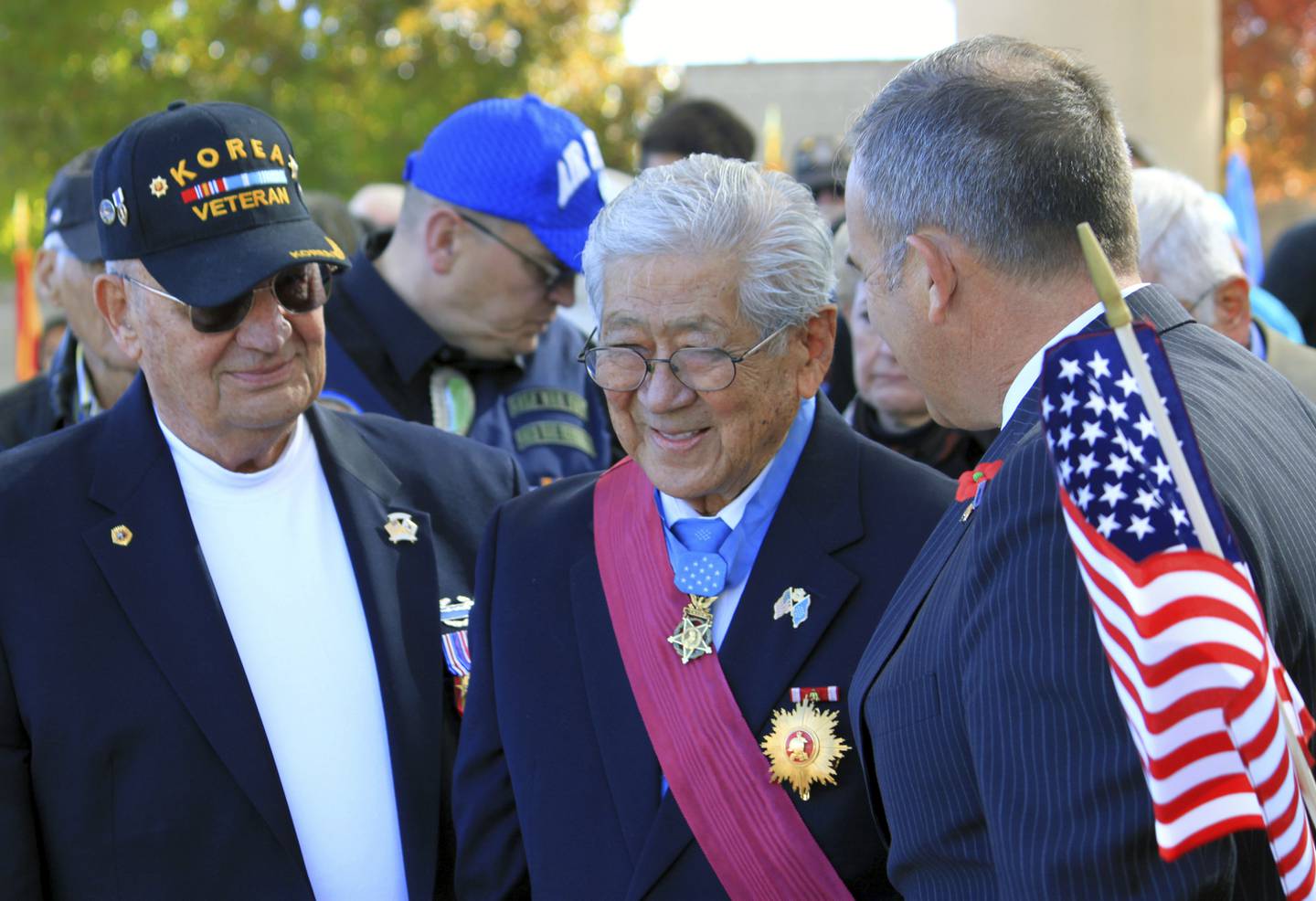US Medal of Honor recipient Hiroshi Miyamura dies at 97
FILE - Medal of Honor recipient Hiroshi Miyamura, a corporal in the U.S. Army during the Korean War, attends the groundbreaking ceremony for the National Medal of Honor Museum on March 25, 2022, in Arlington, Texas. (Amanda McCoy/Star-Telegram via AP, File)
PHOENIX, Ariz. — Hiroshi “Hershey” Miyamura, the son of Japanese immigrants who was awarded the U.S. Medal of Honor for holding off an attack to allow an American squad to withdraw during the Korean War, has died.
The Congressional Medal of Honor Society announced that Miyamura died Tuesday at his home in Phoenix. He was 97.
Born in Gallup, New Mexico, Miyamura’s parents operated a 24-hour diner near the Navajo Nation where the family interacted with the diverse population of miners and travelers who passed along Route 66.
Miyamura’s mother died when he was 11 and his father never talked about Japan, Miyamura said in later interviews. He would earn the nickname “Hershey” because a teacher couldn’t pronounce his first name.
Miyamura worked as an auto mechanic during high school. He joined the U.S. Army late in World War II after the federal government lifted restrictions on Japanese Americans serving. Miyamura was allowed to join the 442nd Infantry Regiment, composed almost entirely of “nisei” — those born in the U.S. to parents who were Japanese immigrants.
After the war, Miyamura met Terry Tsuchimori, a woman from a family who had been forced to live at the Poston internment camp in southwestern Arizona following the Japanese attack on Pearl Harbor. They married in 1948 and had three children.

Miyamura continued to serve in the Army Reserves and was called into action during the Korean War.
On the night of April 24, 1951, near Taejon-ni, Miyamura’s company came under attack by an invading Chinese force. Miyamura ordered his squad to retreat while he stayed behind and continued to fight, giving his men enough time to evacuate.
Miyamura and fellow squad leader Joseph Lawrence Annello, of Castle Rock, Colorado, were captured. Though wounded, Miyamura carried the injured Annello for miles until Chinese soldiers ordered him at gunpoint to leave Annello by the side of a road. Miyamura refused the orders until Annello convinced him to put him down.
Annello was later picked up by another Chinese unit and taken to a POW camp, from which he escaped.
Miyamura was held as a prisoner for two years and four months.
Upon his release, he was presented the Medal of Honor by President Dwight D. Eisenhower. It had been awarded in secret while he was still a prisoner of war.
“I never ever thought I would receive the Medal of Honor for doing my duty, which I thought that’s all I was doing, was my duty,” Miyamura said in the 2018 Netflix documentary “Medal of Honor.”
More News
EndVetMedDebt is licensed under a Creative Commons (BY-NC) 4.0 License.




